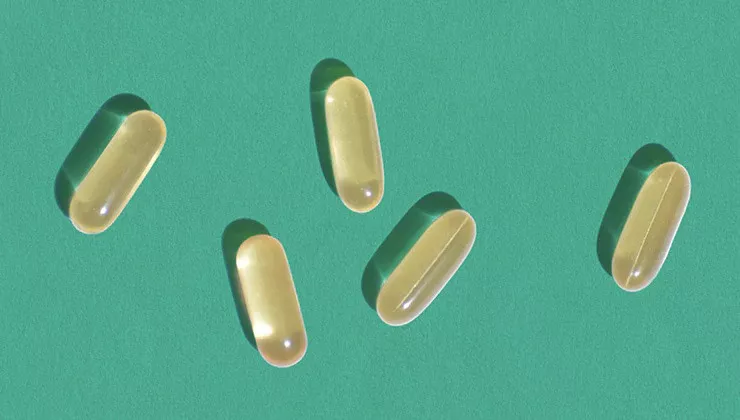Burn scars, with their unique challenges and impact on skin health, often lead individuals on a quest for effective interventions. Among the array of options, vitamin E oil has garnered attention for its purported ability to treat burn scars. This exploration delves into the realm of dermatology, unraveling the potential of vitamin E oil in burn scar management. From its antioxidant properties to its influence on collagen synthesis, each facet of vitamin E oil’s impact on burn scars is scrutinized. As we navigate this journey, the goal is to unravel the scientific insights and anecdotal evidence surrounding the use of vitamin E oil, unlocking its potential as a treatment modality for burn scars.
Understanding Burn Scars: The Complex Tapestry
Before delving into the intricacies of vitamin E oil, understanding the complex tapestry of burn scars is crucial. Burn injuries, whether caused by heat, chemicals, electricity, or radiation, inflict damage to the skin’s layers, triggering a cascade of healing responses. The severity of burns is categorized into degrees, ranging from first-degree (superficial) to second-degree (partial thickness) to third-degree (full thickness) burns. The healing process involves inflammation, tissue repair, and collagen deposition, culminating in the formation of scar tissue. Burn scars, characterized by their potential for hypertrophy or keloid formation, pose unique challenges that necessitate specialized approaches for effective management.
Vitamin E’s Antioxidant Arsenal: A Shield Against Free Radicals
At the forefront of vitamin E oil’s purported benefits for burn scars is its antioxidant prowess. Vitamin E, a fat-soluble antioxidant, serves as a shield against free radicals—unstable molecules that can induce oxidative stress and cellular damage. When applied topically, vitamin E oil is believed to neutralize free radicals, creating an environment conducive to skin healing. The protective role of antioxidants extends to minimizing inflammation and mitigating oxidative stress in the aftermath of burn injuries. While the concept of antioxidants in scar care is compelling, scientific evidence regarding the efficacy of vitamin E oil for burn scars remains a subject of scrutiny.
Collagen Synthesis: Vitamin E’s Influence on Scar Tissue
Collagen, a structural protein abundant in the skin, plays a pivotal role in scar formation and tissue repair. Vitamin E’s potential influence on collagen synthesis adds a layer of complexity to its role in burn scar treatment. Some proponents argue that vitamin E oil enhances collagen production, leading to a smoother and more resilient scar texture. However, scientific studies exploring the direct impact of topically applied vitamin E on collagen synthesis in burn scars are limited. Understanding the nuanced relationship between vitamin E and collagen is crucial for discerning its actual contributions to scar tissue remodeling.
Navigating the Scientific Landscape: What Studies Reveal
As we navigate the scientific landscape, it becomes evident that the efficacy of vitamin E oil for burn scars is a topic marked by varying perspectives and limited consensus. While anecdotal reports and small-scale studies exist, robust clinical evidence supporting the widespread use of vitamin E oil for burn scar treatment is lacking. Some studies suggest that vitamin E, when applied topically, may offer benefits in terms of moisturization and anti-inflammatory effects. However, the translation of these effects into substantial scar improvement remains a subject of ongoing investigation.
Potential Risks and Considerations: The Dark Side of Vitamin E
While the allure of vitamin E oil as a natural remedy for burn scars persists, it’s essential to acknowledge the potential risks and considerations associated with its use. Notably, vitamin E oil is a common cause of contact dermatitis, an inflammatory skin reaction. Individuals with sensitive skin or existing dermatological conditions may be prone to adverse reactions, emphasizing the importance of patch testing before widespread application. Furthermore, concerns have been raised about the oil’s efficacy in penetrating the skin barrier deeply enough to reach the deeper layers affected by burn scars. Balancing enthusiasm with a cautious approach is paramount when considering vitamin E oil for burn scar treatment.
The Role of Moisturization: Beyond Vitamin E’s Antioxidant Appeal
In the realm of burn scar care, the role of moisturization cannot be overstated. Vitamin E oil, often celebrated for its moisturizing properties, contributes to maintaining skin hydration—a crucial aspect of scar management. By preventing excessive dryness and supporting the skin barrier, vitamin E oil may indirectly contribute to the overall comfort and appearance of burn scars. The synergy of moisturization, coupled with vitamin E’s antioxidant appeal, creates a holistic approach to scar care that extends beyond a single ingredient.
Embracing Multimodal Approaches: A Comprehensive Scar Care Strategy
Recognizing the multifaceted nature of burn scars, a comprehensive and multimodal approach to scar care emerges as a strategic consideration. While vitamin E oil may play a role in this repertoire, combining it with other evidence-based interventions fosters a synergistic strategy. Silicone sheeting, laser therapy, and pressure garments are among the established modalities with varying degrees of efficacy in managing burn scars. Consulting with a dermatologist or healthcare professional becomes crucial to tailor an individualized scar care plan that addresses the unique characteristics and challenges posed by burn scars.
Conclusion
In the landscape of burn scar care, the role of vitamin E oil is a subject marked by both enthusiasm and skepticism. While its antioxidant properties and potential influence on collagen synthesis are intriguing, the scientific evidence supporting its widespread efficacy remains inconclusive. As individuals navigate the complexities of burn scars, a nuanced understanding of vitamin E oil’s potential benefits, coupled with an awareness of its risks, becomes paramount. Embracing a comprehensive scar care strategy that integrates evidence-based interventions ensures a holistic approach to scar management. While the quest for effective burn scar treatments continues, the journey is marked by a balance between scientific scrutiny and the desire for transformative outcomes in the realm of dermatology.
[inline_related_posts title=”You Might Be Interested In” title_align=”left” style=”list” number=”6″ align=”none” ids=”3928,3926,3924″ by=”categories” orderby=”rand” order=”DESC” hide_thumb=”no” thumb_right=”no” views=”no” date=”yes” grid_columns=”2″ post_type=”” tax=””]
































